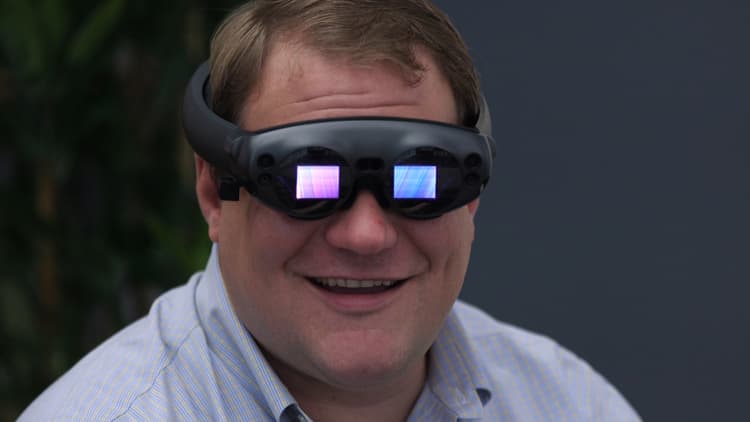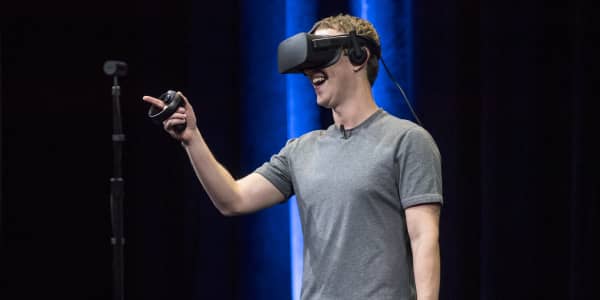Palmer Luckey, one of the fathers of virtual reality who sold his company Oculus to Facebook for $2 billion, recently weighed in on the new Magic Leap headset. Luckey said the new device is a "tragic heap" in his review.
"Their current offering is a tragedy in the classical sense, even more so when you consider how their massive funding and carefully crafted hype sucked all the air out of the room in the AR space," Luckey wrote. "It is less of a functional developer kit and more of a flashy hype vehicle that almost nobody can actually use in a meaningful way, and many of their design decisions seem to be driven by that reality."
Luckey also said that Magic Leap uses technology that Microsoft has been including in the HoloLens headset for three years, and that there's really nothing special about what Magic Leap has done.
"The supposed 'Photonic Lightfield Chips' are just waveguides paired with reflective sequential-color LCOS displays and LED illumination, the same technology everyone else has been using for years, including Microsoft in their last-gen HoloLens," Luckey wrote.
Luckey also said Magic Leap's LuminOS, the software that powers the Magic Leap One, is just a customized version of Android and not a brand-new operating system as Magic Leap has implied.
"It is some of the worst parts of phone UI slammed into some of the most gimmicky parts of VR UI, and I hope developers create better stuff in the near future," Luckey said.
Luckey concludes that he thinks Magic Leap's first product is "nowhere close to what they had hyped up" and that the Magic Leap One "is not good for the XR industry."
Magic Leap has built up a lot of buzz for itself over the last several years through its claims that it was developing a revolutionary headset that would usher in the next era of personal computing. The start-up attracted more than $2 billion in funding before it even had a product to sell.
CNBC had a chance to check out the Magic Leap One, the company's $2,295 headset, in highly controlled demos earlier this month. The mixed-reality experience that it enables convinced us that this sort of technology will eventually replace traditional computers and phones, but Magic Leap might not be the company that takes it mainstream.
Magic Leap was not immediately available for comment.
However, CEO Rony Abovitz appeared to respond to Luckey's blog post with a series of tweets referencing an animated TV series "Avatar: The Last Airbender," suggesting that Luckey is a "bitter, angry, banished Zuko."






